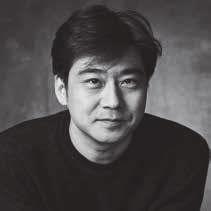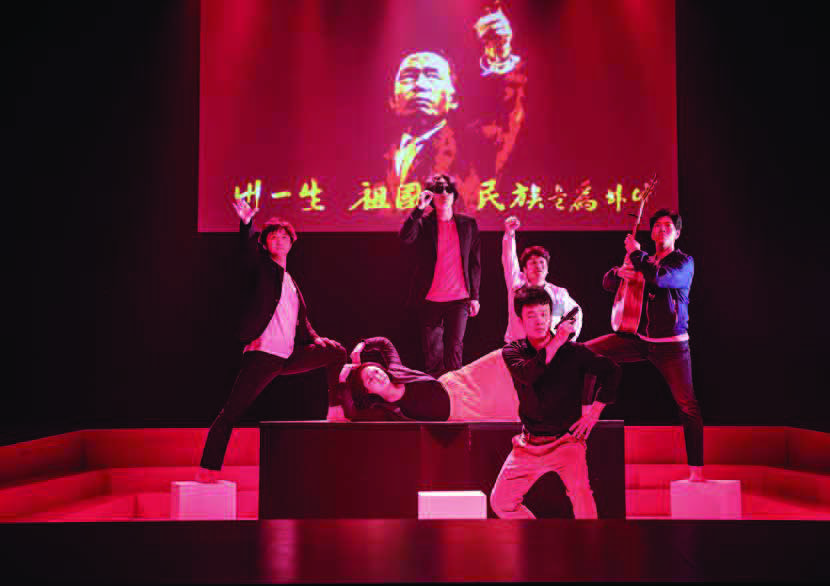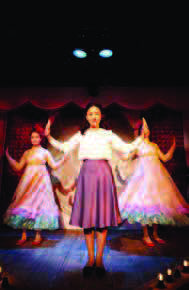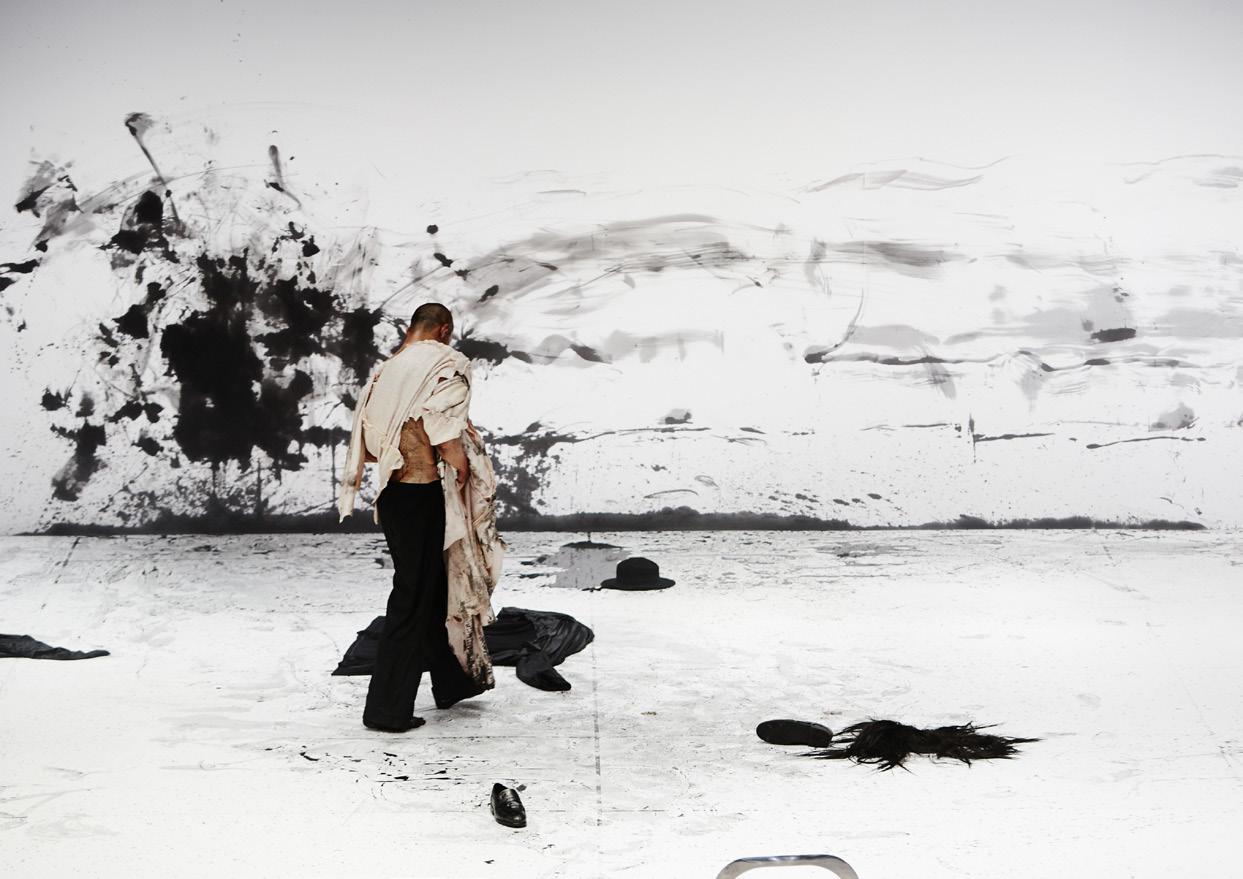Performance Info
JUN In Chul (Theatre director. Director of Theatre Dolpagu)
: Theatre as a school to learn about life
How did you become involved in theatre?
Since I lived in Gangneung in Gangwon Province until I was 27 years old, I had envied the life of people in Seoul. I compared myself with them and it seems to me now that I nurtured the idea that I am not smart enough and thus inferior to them. Art was also out of my field, however, after finding some interest in it I sat in on drama classes without any plans. Then one day, I took part in a play called Si-dong tailor. I made the characters speak in my hometown Gangwon dialect and my colleagues payed respect to my decision. This work greatly influenced me to overcome my inferiority complex. So I feel quite grateful doing theatre.
Unlike your peer group, you continued working with producing theatres, but quite unexpectedly found your own theatre company.
In the theatre scene where producers take the lead, I never really felt the need to found my own company. However, as time went by, I wanted to work with like-minded friends. I set a deadline of 10 years, within which we will look after and be responsible for one another. To encourage us to achieve breakthroughs in theatrical ways, I used the word breakthrough, ‘dolpagu’ in Korean, to name the company.
What do you specifically mean by ‘theatrical ways’?
It means to bring out the charms you can only find inside theatre. That is, to find the most suitable way of staging a given subject matter. There are many ways to do this, but one of it is keeping a ‘distance.’ You can use theatre as a tool to give a distance in looking at a historical figure or event, which the older generation doesn’t find easy to rationalize about - KIM Il Sung of North Korea and PARK Chung Hee from the South, for example. Only then can our generation distance ourselves from the dubious fear, and rightly so. I want to bring on stage the substance of public fear that the powerful are taking advantage of and set up my own theatrical game.
You directed a lot of plays written by KIM Eun Sung.
I directed Si-dong tailor (2008), Uncle Soonwoo (2010) and Sister Mokran (2012). The one that sticks with me is Sister Mokran. At first it was a play about people living in Pyongyang. Even though KIM Eun Sung majored in North Korean Studies, he got across the difficulty of writing about a place he has never been to. So I suggested he’d make half of it set in Seoul and the other half in Pyongyang, but it didn’t work out either. So in the end it became a play about a character who once lived in Pyongyang and now watches the life in Seoul. I directed it exactly as it was written. And even so, it was possible for me to create all elements, such as the form of the piece and rhythm around it.
Sister Mokran is a play about the division of Korea. Is this a hot topic for you?
Looking back, the memory about ‘the division’ has already been in my life. I remember wondering when I was young why the relatives on my mother’s side spoke with a different accent. Now that I think about it, my grandmother’s family came from North Korea. While in the military, the Gangneung submarine infiltration incident occurred and I had to stay outside my legion for two months to capture North Korean spies. The strange feelings I had towards my own family and the case of people who are bound by a country called South Korea yet who do not belong to this nation… - in hindsight, I realize that I had been curious about such questions; and that my experience with my family and from the army was related to issues of the South and North, the division of Korea.
Noran bongtoo deals with issues of laborer’s provisional attachment of assets. How did you get to direct this play?
Sociologist HAN Hong Gu’s suggestion was the starting point for me. I heard playwrightLEE Yang Gu was writing about the issue of laborer’s provisional attachment of assets , so it became a play-Noran bongtoo (2014). For about a month and a half, I visited the factory of a company called SJM to interview people involved in this issue. There were many laborers fighting for their rights, and not a few died during the process. That’s why I tried hard to reflect the position of each character. It might have been considered more realistic because I tried to deal with the interests of the laborers as bare and straightforward as possible.
A lot of characters in your major works are marginalized, powerless people or those who can’t fit in. Have you kept an interest in socially excluded people?
It is the exact opposite. I don’t want to talk about them because I know them too well. It is only for the purpose of theatre. I don’t usually speak my mind about what a human being is like. Of course you can find the frailty of human beings in my work. However, my intention is to talk about the ‘frailty of the human being’ and not the ‘frailty of the weak.’ I’m interested in people who accept and follow an ideology that was built up blindly – like the people from my hometown. Like my father did, like I did. As a theatre artist, I think I’ve come to face the remnants and absurdities engraved in my subconscious mind. I want to explore further the deep-rooted inertia and distorted human nature by engaging in this self-reflection.
Do you have your own theory of directing, a methodology of making theatre?
I don’t. I think that a theatrical style emerges from the content of a play, after all. For that reason, I don’t seek for a fixed from when a theme or topic is established. I rather stay true to the form of performance which naturally emerged from the theme and subject matter. However, I give considerable thought to the intention of the playwright. I listen to the writer’s ideas a lot. I think it makes no sense to have someone else’s text and change it all into my own message. To highlight the play’s attraction but to hide the flaws from the audience is my role as a director.
Unlike your earlier works, The dictator had no writer. How did it affect you as a director?
The dictator (2017) is a collaborative creation based on ‘Ubermensch’, a selected part from the biography, “PARK Chung Hee.” It was created collectively but since there was no text given to the actors, they tried hard to express the vague ideas I had in my head. The process was hugely different from when I was working with a text. Normally when I work with a playwright, I try my best to express the writer’s intention whereas for this production, it seems that the actors had to perform the same role for me.
What is important for you when working with actors?
Just as I get to know about myself over the process, it is important to get to know about the playwright, the actor, the individual person. It’s almost like you have the text underneath and ‘reveal’ the actors. After all, as a creator the actor has to believe in him/herself. The actor has to share a certain life with the audience, and it becomes boring if the actor is lazy or not committed to finding contact with the audience. I think that my role as a director is to find the attractions and personalities of each actor and make them communicate with the audience.
Why do you make theatre?
I do theatre because it is like a window through which I can see things that institution of education hadn’t let me see, like the division of Korea, labor issues and so on. Theatre has made me aware of my indifference to some lives of this world, and working with playwrights and actors made me learn more about what it means to be a ‘human being.’ In this sense, theatre seems like ‘a school to learn about life.’
Production Details
- Director
JUN In Chul
Reference
- E-mailzen4544@hanmail.net












 PREV
PREV
.jpeg)
.jpg)
_(c)포스(FORCE).jpg)
_(c)장석현_코끼리들이 웃는다(SUKHYUN JANG_ELEPHANTS LAUGH).jpg)
.jpg)
.jpg)
_(c)한받(Hahn Vad).jpg)
_(c)비주얼씨어터 꽃(CCOT)(1).jpg)
_(c)봉앤줄 (BONGnJOULE)(1).jpg)
_(c)대한민국연극제 2019 (Korea Theater Festival 2019)(0).jpg)
_(c)몸꼴(Momggol)(1).jpg)
.png)
2018MODAFE_Taemin Cho (2).jpg)











